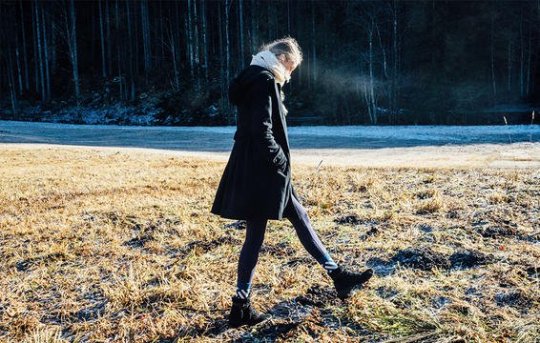#breaking through the ozone layer on those high heels
Photo



TAMINO
GQ Middle East
📷 Emil Pabon
#tamino#taminoedit#tamino amir#dailymusicians#mensource#flawlessgentlemen#myedit#zero comprehension...#this man is trying to kill me every damn day#he's so fucking tall i can't stand it#i wanna climb him like a tree#breaking through the ozone layer on those high heels
5K notes
·
View notes
Photo

New Post has been published on http://www.lifehacker.guru/7-ways-make-sure-winter-blues-dont-totally-take-life/
7 Ways To Make Sure The Winter Blues Don't Totally Take Over Your Life
GETTY IMAGES
After the holidays, your mood can really take a hit. The days are dark and cold, holiday lights have been taken down, and your presents have been opened. The New Year’s parties are over, and there aren’t many really awesome holidays to look forward to for awhile. (We’re coming for you, Memorial Day.)
Welcome to the winter blues. Marked by fatigue and down-in-the-dumps moods, they affect up to 20 percent of the population, according to the American Academy of Family Physicians. Meanwhile about 4 to 6 percent of people suffer from full-blown seasonal affective disorder (SAD), which includes clinical depression, anxiety, over- or under-eating, oversleeping or insomnia, and avoidance of social situations.
“Our biological systems shift throughout the seasons, so our moods inevitably shift as well,” explains psychologist Ellie Cobb, Ph.D. In the winter, the body’s levels of the feel-good neurotransmitter serotonin, as well as the energizing hormone norepinephrine, are actually depleted. That’s because the production of these chemicals is partially triggered by light-sensing photoreceptors in the eyes, and, in the winter, light is at a premium, she explains.
Meanwhile, it’s important to realize that you get most of your mood-boosting vitamin D through a chemical reaction in the skin that occurs when it’s struck by ultraviolet rays, per the National Institutes of Health. However, in the winter, sunlight hits the earth at such a wide angle that the needed rays can’t make it through the ozone layer to reach you, per research from the Boston University Medical Center.
Put together, all of that can make winter depression feel like a biological imperative.
But, once you understand the biological changes that trigger the winter blues, you can override them. Here, 10 biohacks to help you beat winter depression and finish the season strong:
GETTY IMAGES
1 STAY SOCIAL
While socially isolating yourself during the winter is a tell-tale sign of depression, research consistently shows that social interaction is key to human health. According to a study in the Journal of Health and Social Behavior, social interaction affects the hypothalamic–pituitary–adrenal (HPA) axis, a feedback loop between the brain and endocrine system, to reduce levels of stress hormones while increasing levels of feel-good ones.
Among the best for your mood and energy levels are oxytocin (the same neurotransmitter that you release during an orgasm) and serotonin, Cobb explains.
Try making plans to get brunch once a week with your friends, or even grab coffee with work buddies during the day. More of an introvert? It can be harder to want to plan or attend social gatherings if you feel like these events drain you rather than energize you. If you don’t think a big group of people will help with your winter depression, try planning more one-on-one activities with people you really care about, she says.
GETTY IMAGES
2 TURN UP THE LIGHTS
Light therapy can fight winter depression just as well as taking antidepressants, according to Harvard University. That’s because, just like SSRIs (selective-serotonin reuptake inhibitors) they increase the levels of serotonin in the brain. Plus, if the lack of winter light has your sleep schedule all out of whack, using light therapy first thing in the morning can stimulate your eyes’ photoreceptors to shut off your brain’s production of melatonin, a sleep-promoting chemical that you really only need at nighttime.
For the best results, turn on your light-therapy lamp within the first hour of waking up and keep it going for at least 20 to 30 minutes, recommends Mayo Clinic. The lamp should be 16 to 24 inches away from your face.
GETTY IMAGES
3 GET THAT VITAMIN D
Studies show that, in people with D deficiencies, increasing intake during the winter months may help combat winter depression even more effectively than light therapy. “Vitamin D is an important factor in the release of serotonin in the brain,” according to Parinaz Samimi, M.P.H., a wellness expert with Just Energy.
If you’re struggling with winter depression or live in a northern location, get your vitamin D levels checked. If your levels are low, your doc will be able to recommend the right dosage for getting back on track. (Unfortunately, foods don’t pack a whole lot of D.)
GETTY IMAGES
4 PLAY WITH COLOR
Surrounding yourself with the right colors can help shake you out of your funk, according to a 2015 color therapy review. While color therapy is still in the early stages of research, bright colors can actually trigger alertness. The neurological changes that occur when you see a bright red, green, or blue light mimic the same effects observed in nature studies.
Try carrying the brightness with a bouquet of flowers, sporting those cute red heels that you’ve been keeping in the back of your closet, or treating yourself to a unicorn hot chocolate. (Add these color therapy bath botanicals to your bath for a nice relaxing evening in—get them now at the Women’s Health Boutique.)
GETTY IMAGES
5 BREAK A SWEAT
Move more, feel better. Time and time again, research shows that regular exercise can fight depression, and one new study in The American Journal of Psychiatry proves that as little as one hour per day can prevent depression.
“Physical activity and exercise activate the brain to release the neurotransmitters of endorphins, serotonin, dopamine, and others that are all related to regulating mood,” Cobb explains. Exercise may also increase the size of the brain’s hippocampus, which could further promote better moods.
If you already have an exercise routine you like, stick to it. If you’ve yet to find one that works for you, try a group fitness class at the gym or at a local yoga studio. Bonus: workout classes are also a great way to get that social boost we talked about before. (Looking for a fun workout? Dance your way fit with High-Intensity Dance Cardio, the first-ever socanomics DVD!)
GETTY IMAGES
6 LIMIT SCREEN TIME
If you experience insomnia due to your winter depression, you might feel the urge to stay up later watching Netflix on your TV or reading on your tablet, but according to clinical psychologist Chris Friesen, Ph.D., that’s actually the worst thing you can do.
“Exposure to these light sources causes significant shifts in our circadian rhythms and essentially tells our brain that it is still daytime and thus not to release melatonin in order to prepare for sleep,” he explains. Instead, when you’re sitting in front of the blue light of your phone, your hypothalamus releases the neurotransmitter orexin (also called hypocretin), which increases alertness. The body also ramps up its levels of the stress hormones cortisol and adrenaline.
Essentially, if you’re struggling with the winter blues, throwing off your sleep schedule exposes you to more stress hormones, which just makes you feel worse. So, be sure to turn off the computer and get those Zs.
(C)
0 notes